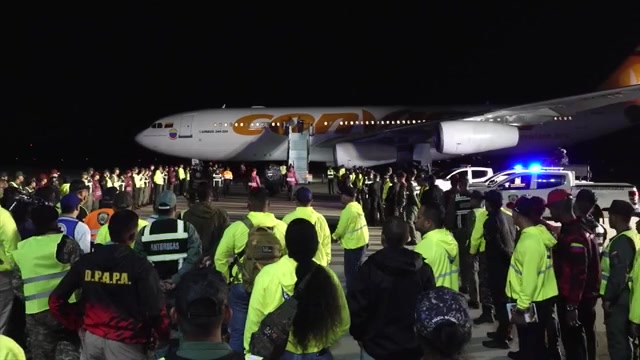Supreme Court Temporarily Blocks Deportations of Venezuelans Held in Texas
On Saturday, the Supreme Court issued a temporary stay on the deportation of Venezuelans detained in northern Texas, specifically at the Bluebonnet Detention Center. This decision came in response to an emergency appeal from the American Civil Liberties Union (ACLU), which argued that individuals were at risk of being swiftly deported under the 18th-century Alien Enemies Act.
Background of the Case
The high court’s order prevents the Trump administration from deporting these individuals until further notice. Notably, Justices Clarence Thomas and Samuel Alito dissented from this decision.
The ACLU had raised alarms about the administration’s intentions to resume deportations under this historical act, which has only been invoked a few times in U.S. history, including during World War II against Japanese Americans. The court previously ruled that deportations could only proceed if detainees were allowed a fair opportunity to contest their removal.
Reactions from the ACLU and the Administration
“We are deeply relieved that the Court has temporarily blocked the removals,” stated ACLU lawyer Lee Gelernt. He emphasized the imminent dangers faced by the detainees, who could be sent to harsh conditions without due process.
In response to the court’s ruling, the Trump administration filed a motion asking the court to reconsider its decision. Press Secretary Karoline Leavitt expressed confidence that they would ultimately win against what she described as meritless legal challenges from activist groups.
Legal Developments
Earlier on Friday, U.S. judges had declined to intervene in the case despite acknowledging potential issues. The ACLU’s concerns were exacerbated by reports that some detainees had been flagged as members of the Tren de Aragua gang, making them targets for rapid deportation under the Alien Enemies Act.
Frustration mounted when a local judge, appointed by Trump, dismissed requests to bar deportations because he believed that the administration had not yet initiated removals. However, the ACLU presented evidence that some detainees were informed they might be deported imminently.
Concerns Over Due Process
Significant questions arose regarding the legality of the detentions and the rights of those affected. One legal advocate reported that her client had been urged to sign documents in English, despite a language barrier, although it was asserted that the materials provided did not clearly articulate the detainees’ rights to appeal their deportations in court.
U.S. District Judge James E. Boasberg remarked on the constraints he faced in offering relief after acknowledging there was probable cause to suspect criminal contempt by the administration.
Future Implications
The situation highlights the complexities surrounding immigration enforcement and the challenges surrounding policies that can potentially strip individuals of their rights. The Supreme Court’s latest decision signifies an ongoing legal battle over the treatment of Venezuelan detainees and may impact future deportation efforts.
As developments continue to unfold, the legal framework surrounding the Trump administration’s use of the Alien Enemies Act remains under scrutiny, particularly as these detainees face possible deportation to countries where they may confront serious dangers.

